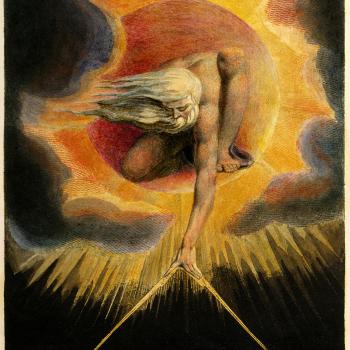The doctrine of creation means more than opposing evolution. It teaches that there is a “created order” that we belong to. As Christians wrestle with the controversial issues of our day, we often forget this fact.
So says Breakpoint writer and Patheos blogger G. Shane Morris in his post Rules Without Reasons: Why the Culture Is Eating Evangelicals for Lunch. He asks, “Is there a discernible moral and social order built into creation, as the old Christian theologians thought—an order which Christ came to this world to restore and glorify—or do the graces of salvation and special revelation abolish the natural order in favor of something unprecedented?”
The implications of how we answer this are far-reaching. For instance, do we need explicit statements from Scripture to reach certain moral conclusions, or are these conclusions evident in nature and accessible via reason? Do we need chapters and verses condemning women in military combat roles, LGBT “spiritual friendships,” masturbation, or surrogacy, or can we reach conclusions about these things by reasoning from the created order? Catholics have historically said “yes,” producing a rich body of natural theology that gives moral guidance (however imperfectly followed) to members of that communion. I suggest most evangelicals, by contrast, can’t answer this question, or else they will answer it in the negative, believing that the doctrine of Sola Scriptura requires them to “remain silent where Scripture is silent.”
To offer a more controversial example, evangelicals who see my social media posts about intentionally childless couples often reply that not everyone is “called to parenthood.” There is a superstructure of philosophy and assumptions buried beneath that sentence. It implies a theology of marriage as an essentially companionate institution which is fulfilled without even the intention of being fruitful. It also implies that parenthood is a supernatural, rather than a natural calling. Instead of being a major part of the telos or purpose of marriage, it is an optional side-quest to which God may summon a couple via new revelation. For many evangelicals today, there is no prior mandate evident in creation to reproduce, or for that matter, to do or refrain from doing much of anything. Roles, duties, and moral facts which generations of Christians before us would have seen as self-evident now puzzle evangelicals, who take the view that whatever the Bible doesn’t forbid is allowed.
This puts them in awkward postures when it comes to arguing against things like same-sex marriage. After all, if we have already embraced the companionate model of marriage, what is the difference between two intentionally childless heterosexuals and two necessarily childless homosexuals? It’s hard to make the case that marriage, shorn of its procreative telos, is something of which complementary sexes are uniquely and exclusively capable. This is one of the main reasons we evangelicals have lost the cultural and legal wars on this issue. We already accept many of the culture’s premises, and have little besides special revelatory fiat with which to answer the inexorable chant of “marriage equality!”
Note the confusion about the doctrine of vocation that Shane draws our attention to. “Calling” is not a feeling or inclination. It reflects reality in the here and now. If you want to be married, that is not in itself a vocation for marriage. If you get married, then you have the vocation of marriage. If you have children, then you have the vocation of father or mother.
I’m intrigued by the distinction he makes between the “companionate model of marriage” and, I suppose it would be called, the “procreative model of marriage.” The vocation of marriage, of course, involves both finding a companion (a “helpmeet”) and establishing a family with the purpose of having children (being fruitful and multiplying). If the latter proves impossible, that does not negate the vocation of marriage. Nor does problems with being “companionate” negate the vocation, contrary to the divorces on the grounds of incompatibility.
Shane goes on to apply the principle to other issues. Many Christians reason like this: “The Bible doesn’t say anything about transgenderism, so there can’t be anything really wrong with it.” “The Bible says that women shouldn’t be pastors, but that means they can be anything else, including warriors in combat.” “The Bible forbids sex outside of heterosexual marriage, so as long as the couple is celibate, they can be part of the gay lifestyle.”
As opposed to thinking about these issues in terms of what is natural–that is to say, not wildlife and wilderness, but what conforms to reality, to the created order.
Catholicism is all about the “natural law.” Protestants have held various positions about the natural law, usually seeing it as no substitute for the revelation of Scripture, but applicable to this-worldly considerations.
Lutherans, as I understand the issue (correct me if I’m wrong), hold to natural law as applying to God’s temporal kingdom, which includes His created order and civil righteousness. God’s eternal kingdom is brought about not by Nature but by His Word, which conveys Christ’s redemption.
Is Shane’s analysis too “Catholic”? Does he hold sufficiently to “sola Scriptura”?
Illustration by William Blake, [Public domain], via Wikimedia Commons














